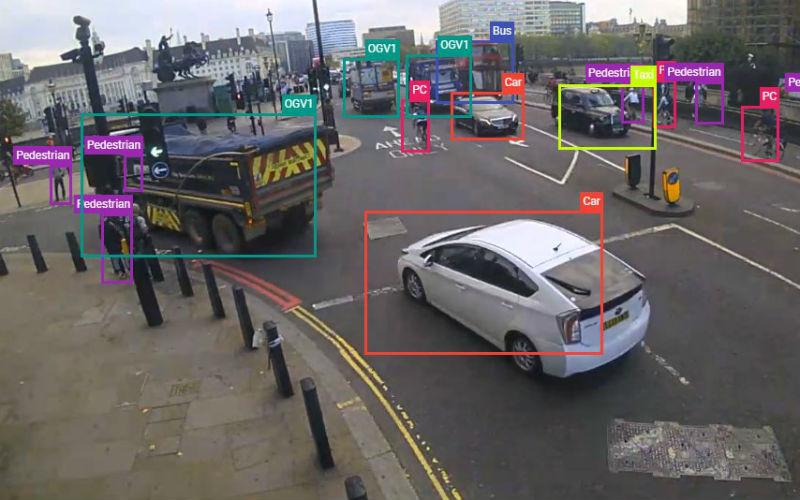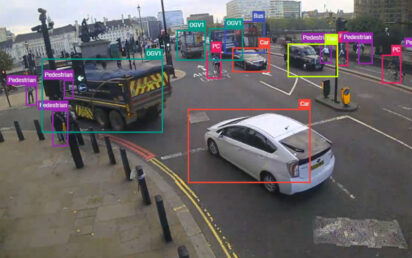Vivacity Labs and Transport for Greater Manchester have announced the rollout of AI-controlled ‘smart’ traffic junctions.
The deployment accommodates the increase in cycling and walking in the city during the COVID-19 pandemic.
Using sensors with inbuilt artificial intelligence, Vivacity enables TfGM to anonymously identify different types of road users at selected junctions and control traffic signals to allow different modes of transportation to be prioritised as and when required.
With more cyclists on the road as people avoid public transport, these ‘smart junctions’ will be able to give priority to people on foot or bike where and when appropriate.
The initiative won the Innovative Use of Technology award at the 2020 Intelligent Transport Systems Awards last week.
Vivacity Labs’ first-of-its-kind AI signal control system first went live early this year, before scaling to simultaneously control three, neighbouring junctions in the Blackfriars area of Salford in September 2020.
This initiative also has the potential to reduce emissions and improve air quality in the Greater Manchester area. Congestion and queuing can be reduced by traffic signals that respond better and more quickly to changes in traffic conditions than existing systems.
This comes as part of a three-year Innovate UK co-funded programme (alongside Immense Simulations) to use AI to optimise traffic networks. Vivacity Labs has developed an algorithm that is able to adapt quickly to changing traffic conditions and efficiently implement high-level strategies at both local and city-wide scales.
There has been a nation-wide boom in the number of cyclists since the COVID-19 pandemic took hold. With people avoiding public transport when getting around towns and cities, and the daily commute changing for many in the longer term, innovation in transportation is a pressing need across the UK.
“Since the pandemic, commuter trends and traffic hotspots have changed completely, and cities need AI to help protect people no matter what mode of transport they take,” said Mark Nicholson, CEO of Vivacity Labs.
“Our vision is to help cities implement critical policies addressing safety, air quality, sustainable travel, and congestion, at a hyper-local level.”
Digital Infrastructure Minister Matt Warman said: “Smart traffic technology is just one of the many ground-breaking areas the government is funding to pioneer new ways for artificial intelligence and 5G to transform our lives for the better.
“We’re backing this initiative in (Greater) Manchester to improve the city’s transport, reduce journey times and cut pollution. I look forward to seeing its positive impact and sharing the lessons across the UK.”
Richard Dolphin, Highways Network Performance Manager at Transport for Greater Manchester, commented: “Having already developed an innovative product in terms of their sensing technology, Vivacity has become well-versed in the relevant standards and have made impressive strides in the continuing development of their Smart Junctions system.
“We’ve been really impressed with how Vivacity has approached this, assessing current ways of working and addressing the complexities of managing a multi-modal transport network. Hopefully, this development will continue into something that will positively disrupt the industry and revolutionise active travel in urban areas.”
The project has secured additional investment to expand throughout the trial region via the Department for Digital, Culture, Media, and Sport’s ‘5G Create fund’ which was announced in July 2020.
The project will scale up to an area of 20 junctions in Manchester by the end of 2021 and aims to demonstrate impact in the real world in the form of improved journey quality for all road users in this region.


